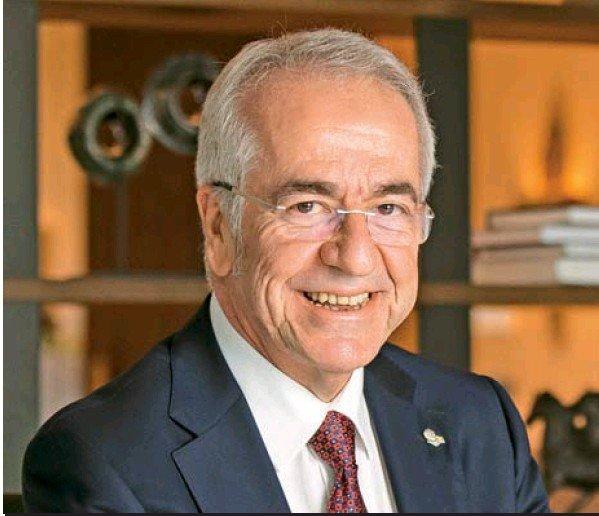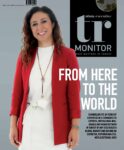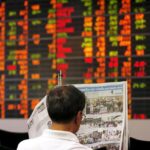BY HAKAN GULDAG, VAHAP MUNYAR, SEREF OGUZ
“Turkey should take steps to improve its democratic image, judicial independence and freedoms for its economic reforms to be sustainable, to restore investors’ trust, and to increase its credibility and image.”
Q: HOW SHOULD TURKEY TAKE ADVANTAGE OF THE POST˹COVID PERIOD IN TERMS OF ATTRACTING VALUE CHAINS AND BECOMING A SUPPLY HUB ALTERNATIVE TO CHINA?
A: Turkey, which has broken through in the logistics sector in recent years, is a candidate to be a production base for Europe and the region with its status as a developed nation, strategic location, logistics experience, skilled labor, adaptive capacity to innovations of its young population and strong entrepreneurial profile. Turkey can turn the COVID-19 crisis into a global opportunity and be among the alternatives to China in global supply chains if it plans well and quickly and with discipline.
Q: WHICH STEPS SHOULD TURKEY TAKE TO INCREASE COMPETITIVENESS AND ACHIEVE STEADY GROWTH?
A: Considering the upcoming period, despite the complicated outlook in the global economy, the first target for Turkey must be progressing without compromising growth, which will generate employment and is possible with rational policies.
Technology is the trump card in the global arena. Turkey’s most important move must be accelerating its digital transformation. Wise investments should be made in technology and talented human resource to manage the transformation and certain economic reform process should be implemented.
The story and brand perception of a ‘strong Turkey’ should be more well-developed to project to the world an optimistic picture and reveal the country’s potential. This is important for the continuation of investment flows to the country and to attract new investments. Moreover, Turkey’s investment environment must be more predictable than its rivals. In this direction, we need more regorms that will expand fundamental rights and freedoms, strengthen the rule of law, provide institutions that work independently and with a market-driven approach.
Q: HOW DO COUNTRIES AND COMPANIES THAT FOCUS ON DIGITAL TRANSFORMATION STAND OUT IN TERMS OF GROWTH?
A: The greatest opportunities offered by digitalization are productivity growth, rapid response to the customer needs, innovation and creation of new sources of income. In this context, e-commerce, which is a very profitable and high-volume business line, has an important potential. The opportunity here is the competitive advantage. The impact of digital transformation on competitiveness has become more pronounced as a result of the pandemic. Digital transformation is expected to create USD 100tr in economic benefits over the next 10-years, according to the World Economic Forum. The size of economy to be created by Artificial Intelligence alone is estimated at USD 15.7tr by 2030. If you add in blockchain valued at USD 3tr, an Internet of Things economy estimated at USD 500bn, and other transformative technologies the figure exceeds USD 20tr. Considering the current global economy is valued at USD 133tr, countries that have a voice in these technologies will be new leaders for this century. That’s why digital transformation is the most important area to develop Turkey’s global competitive power and we need to quickly proceed with it. In terms of R&D and innovation, the government provides important incentives, yet we aren’t at the desired level. The share of high-technology products in exports stands at 3-4%. Turkey should renew its education system and modernize it immediately in order to prepare young people for a hightech future. There is a directly relationship between economic growth, development, innovation and the capacity of technology creation. Research, development and innovation can be carried out only in a free environment and with people who are educated with a scientific approach.
Q: HOW DOES FOREIGN POLICY AND GEOPOLITI˹ CAL RISK MANAGEMENT AFFECT THE BUSINESS WORLD?
A: Our economy has gained momentum whenever relations based on respectful communications have been established in foreign policy. Stability in foreign relations is a must for economic stability. The business world keeps one eye on the economy and the other on the foreign policy.
Short-sighted, hasty steps taken in international relations do not only affect the current economy but also the future. Continuous policy shifts between hard and soft power in foreign relations will have serious economic, social and political costs.
As the business world, our priority is a stable, objective, reliable economic management team which is open to change and friends with international investors. Foreign policy should never increase economic risk for the business world. We should show all countries and their businesspeople that Turkey is a safe country with a bright future and they should continue their investments in our country. We need a moderate environment where economic collaborations and investments are discussed instead of sanctions and disputes with other countries.
Q: HOW DO YOU READ TURKEY’S 1.8% GROWTH IN 2020, DURING A PANDEMIC?
A: The key reason of this growth was the implementation of a strong credit policy. Low interest loans boosted both house and automobile markets, which affected growth. The ‘prescription’ is generally to increase loan volume when the economy slows down in Turkey. This is not a sustainable economic policy and doesn’t have good results in terms of unemployment and income distribution. We should aim for more healthy, permanent and sustainable growth in the long-term that will also control inflation.
Q: WILL ‘ECONOMIC REFORMS’ ANNOUNCED BY PRESIDENT ERDOGAN MEET EXPECTATIONS?
A: The package will help to mitigate the negative impacts of the pandemic in the economy rather than act as comprehensive reforms. The other needs of economy should be tackled more comprehensively following these short-term problems. Turkey should take steps to improve its democratic image, judicial independence and freedoms for its economic reforms to be sustainable, to restore investors’ trust, and to increase its credibility and image.










